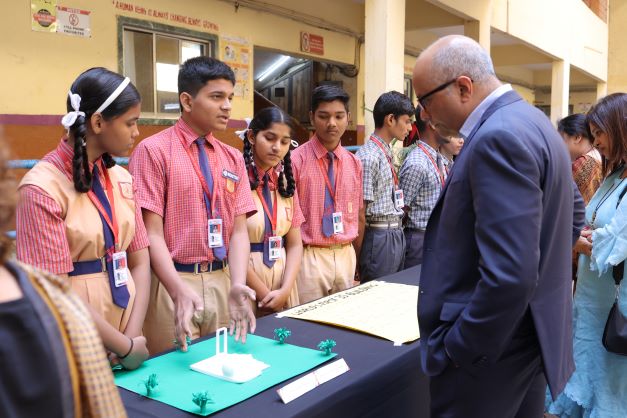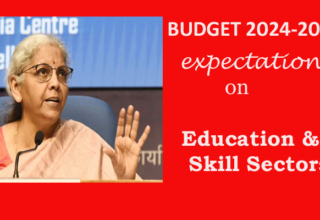
WPP Foundation, the CSR entity of WPP in India, organized Tinkerthon, an event to celebrate young innovators, on 24th January 2023 at the Community Makers Space (CMS), in Vidya Varidhi Vidyalaya and Junior College, a school supported by WPP Foundation in Nalasopara, Mumbai
The day-long Tinkerthon event was a culmination of the efforts put in by the talented children of Vidya Varidhi Vidyalaya over the past few years, who despite coming from impoverished backgrounds and facing numerous challenges have passionately managed to dedicate themselves to a unique learning experience. A total of 16 projects were displayed at the event that represents some of the best work produced by the children.
Students also got an opportunity to participate in an interschool robotic competition where the chosen winners were awarded prizes by the chief guest. It was a day devoted to celebrating the students who have learned to code, trained in 3D design, and gained important skills along the way that will equip them to compete in an increasingly digital world.
Commenting on the success of Tinkerkthon 2023, Rama Iyer, Director General, WPP India CSR Foundation said, “We at WPP India Foundation believe every child could be an inventor or an innovator. To support this we build their critical thinking and creativity skills, making them 21st-century-ready. Our children are remarkable and we’re so excited to see this program grow and impact more and more lives.”
WPP Foundation launched the Community Tinkering Lab at Vidya Varidhi Vidyalaya and Junior College in collaboration with Atal Innovation Mission and NITI Aayog in 2019. Since then many children from marginalized communities with limited opportunities but determined spirits have had the chance to explore their innovative side and build on their problem-solving abilities thus setting themselves up for a successful future. Instead of being deterred when the world shut down in 2020 following Covid, the children continued to work on their projects with virtual guidance from their mentors and building projects through educational kits that were sent to their homes.
Most of these children are first-generation learners, meaning they are the first in their families to get any kind of formal learning. Given the circumstances, such opportunities for growth and imaginative learning beyond a classroom are very hard to come by for this group of children.










